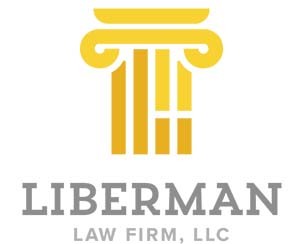
The Intervention Program is a non-disciplinary consent agreement. It is a life vest for impaired nurses facing a substance abuse complaint. Its tough, but take it.
Alcohol and controlled substance complaints rank second in the disciplinary category for Missouri nurses in fiscal year 2020. Your employer must file a complaint if you test positive in a for-cause drug screen. A potential employer complains when you fail a pre-employment drug screen. The complaint may result from conduct outside of work, such as DWI arrest, or Possession of Controlled Substance.
Summary of Nursing License Discipline
The Board’s website lists: COMPLIANCE ACTIONS AVAILABLE TO THE BOARD
The Board disciplines nurses who violate the Nursing Practice Act. Missouri law authorizes the Board to impose any of the following disciplines, listed in order from lenient to severe:
- Censure, can be private or public;
- Probation, can be private or public;
- Suspension, always public; &
- REVOCATION, always public.
The Board reports all public disciplines. They are reported to national databases such as Nursys. Because they are public, the nurse has to disclose the discipline on any job application, or license renewal, which asks about previous nursing license discipline. This included renewal of non-Missouri state nursing licenses. Public discipline severely restricts employment opportunities at major hospitals. Obviously, this impacts income levels. A non-disciplinary consent agreement such as the Intervention Program is vastly preferable, although tough to complete.
Drug or Alcohol Public Probation
Public probation is the typical response to substance abuse violations. Probation requires random daily drug screening for up to 5 years. Employment may be restricted during that time. For example, the nurse probation agreement may prohibit:
- Home health nursing, (no supervisor);
- Night shifts, (less personnel around);
- Working where there is no on-site supervisor with authority to send you home, (impaired behavior may lead to patient harm);
- Passing narcotic meds, (eliminates diversion opportunity).
Other common employment requirements:
- No teaching in nursing programs,
- Provide employer, or prospective employer, copy of probation agreement,
- Employer must file quarterly status report with the Board.
Drug or Alcohol Non-Disciplinary Consent Agreements: Intervention Program
Fortunately, The Board administers 2 non-disciplinary consent agreement programs:
- The Intervention Program, and
- The Alternative program.
The Intervention Program (IP) is available to nurses with drug or alcohol complaints against their licenses. You must be invited to participate, you cannot “opt-in”. Similarly there is the Alternative Program. This blog post will discuss the Intervention Program. This program often is as short as 1 year.
The Intervention Program Bones
The intervention program is available, upon board discretion, to licensees and applicants for licensure who self-refer, test positive in a pre-employment or for-cause drug or alcohol screen, individuals who have pled guilty to or been found guilty of any drug offense, whether felony or misdemeanor, or individuals who have pled guilty to or been found guilty of three or more criminal offenses resulting from or related to the use of drugs or alcohol, whether a felony or misdemeanor. The program shall be a minimum of one year in duration and require random drug and alcohol testing at the participant’s expense. Missouri Revised Statute 335.067
There are over 8 pages of terms in the Intervention Program Agreement. Lets boil them down. The nurse must:
- Meet with the Director of Compliance at the outset. Usually this means in Jefferson City. The Director of Compliance explains all requirements face-to-face.
- Enroll in Nursys e-Notify.
- Only practice nursing in Missouri. If you have a multistate license, it will be deactivated. No nursing practice in other Nursing Compact states.
- Submit a list of all currently prescribed medications to the Board.
- Show the Intervention Program Agreement to any healthcare professional prescribing any meds, narcotic or otherwise. Also the prescribing healthcare provider will send all prescriptions to the Board.
The Intervention Program Meat
Drug Screenings
Every day, 7 days a week, including holidays, you must check in with the Third Party Administrator (TPA) on time. On time means between 5 a.m. and 4 p.m. Central time. If you are on vacation in another time zone, make extra sure you are checking in during Central hours. At check in, you will be notified if this is the day you must be drug-tested. Usually a urine screen, but can be nail or blood.
I recommend checking in early. Why? Because if you are selected for random testing, you must report to the drug testing site before the close of business the same day. There are testing sites all over the country, but particularly in rural areas, you might have to travel some distance to get there. If you report late, or fail to report, its a violation. Don’t get violated.
Intervention Program Positive Drug Test
Testing positive is a violation. This includes alcohol. In order to contest the result, you have to get your own expert to testify about why your test was invalid. Or, your physician to testify why your test was a false positive due to medical causation. Both of theses ideas cost a lot of money, and even then, it is up to the Board to decide if your witness evidence is credible. Don’t test positive.
Low Creatinine Levels, Diluted Sample
Creatinine levels below 20 are considered “dilute” and considered a failed test. No excuses for drinking too much caffeine. Also, if there is not enough urine collected, the test is void, another form of violation.
Intervention Program Violation
Any violation will almost surely result in a suspended license FOR A MINIMUM OF 12 MONTHS. This is indeed a public discipline.
The Intervention Program is STRICT
Participants may not drink alcohol or ingest marijuana on a weekend or day off. Not even when on vacation. Yeah, really. And just to be crystal clear, no oil [google will not run my ad if I use the initials], no poppy seeds, near-beer, vanilla extract, Kombucha or other fermented tea.
And in case you’re wondering, I looked up the poppy seed thing, because, first, I thought that was goofy, and second, because my client had just signed the Agreement, and her supportive boyfriend brought her a salad with poppy seed dressing on it. She called me, concerned. Guess what. A Healthline article warns eating poppy seed danish may give a false positive on the opiate panel. Not a whole box of danish.
Seriously, don’t mess with the restrictions. The Board has already heard them all before. The probation terms take away any type of end run excuse you may have for your positive drug screen. You don’t get any do-overs.
In Sum
The Board has recognized nurses may suffer drug or alcohol addiction. Nursing is a stressful practice. More so now than ever. The Nursing Board wants to help nurses with this problem, at the same time protecting the public from impaired nurses. This is a tough balancing act. The Intervention Program is a non-disciplinary consent agreement for some impaired nurses.
The Intervention Program is a life vest which offers a second chance to the nurse with drug or alcohol complaints. If offered, should be accepted. BEWARE, it is extremely difficult and unforgiving. The nurse must perform the terms flawlessly, without excuse. I believe this is an important tool enacted by our legislature, administered by the Board of Nursing for the benefit of the profession, as well as the public.
See my blog Substance Abuse Complaint for more info.







Write a comment: